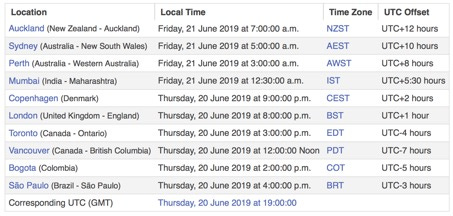The 5th critical physiotherapy course is next week: Tobba Sudmann on 'How to understand disability'
The 5th in our 2019 series of Critical Physiotherapy Courses will be led by Tobba Sudmann, Physiotherapist and Professor of Public Health at the Centre for Care Research, Western Norway University of Applied Sciences.
The session is titled 'How to understand disability? On the making of disability though discourse, materiality and practice'.
As always, the session is free, all you need to do is click on the link below at the time of the meeting to listen in.
Zoom link: https://aut.zoom.us/j/408228596
Abstract
This session will show how the phenomenon ‘disability’ is created through our modern history and our ways or ordering and doing ability and disability. The online lecture takes it departure in Per Solvang’s paper on “The emergence of an us/them discourse in disability theory’, followed by an exemplification of how disability might be ordered as discussed by Ingunn Moser. These two Norwegian scholars have created a watershed in how we think about and understand ability/disability in Norwegian scholarship, and in some of the teaching going on – depending on the lecturer.
Discourse is a contested concept, but usually it denotes who we think, talk, name and frames a specific subject matter, as disability. Per Solvang defines it like this:
Discourses define what is recognized as meaningful in thinking about a phenomenon. A discourse is not based upon the existence of a certain object, such as disability. The discourse represents rules for ways of thinking that make possible the appearance of an object at a certain time and place. It does not point out deterministic relations between the powerful and the not so powerful. A discourse perspective points out powers of definition that are possible to bring out in social relations (Foucault 1972, Sirnes 1999).
Ingunn Moser, following John Law, suggests that the concept “mode of ordering” is better, because it is capturing the processual side of naming and framing issues and practices. Lived life is an ongoing process of ordering. The lecture will introduce the concepts ‘discourse’ and ‘mode of ordering’ and invite to a discussion of how we frame, name and relate to ability/disability by presenting Moser’s cases and some examples from my own practice.
Please read the two articles before the lecture. Do not let difficult words or phrasings stop you – just skip them and keep om reading. The main message in the text will get across anyhow. If you feel you skipped too much, re-read, but in the same manner. Read fast, skip everything that seems unintelligible, and keep on reading J
Readings
Solvang, P. (2000). The emergence of an us and them discourse in disability theory. Scand.J.Disability Research, 2(1), 3-20.
Moser, I. (2009). A body that matters? The role of embodiment in the recomposition of life after a road traffic accident. Scandinavian journal of disability research, 11(2), 83-99.




